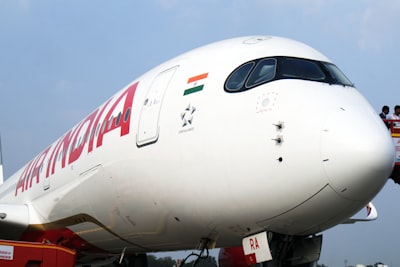Aviation Oversight in Turbulence: What the Scrapped Air India Audit Reveals About Regulatory Challenges
India's civil aviation sector, once celebrated for its rapid expansion and new-found global confidence, now stands at a crossroads marked by sharper scrutiny and public concern. The recent and abrupt cancellation of a planned audit of Air India by India's aviation watchdog—the Directorate General of Civil Aviation (DGCA)—signals complexities that go far beyond the fate of a single airline.
The Stakes Behind Aviation Audits
Aviation audits are fundamental to passenger safety and regulatory compliance, especially for national carriers like Air India. They assess adherence to safety norms, maintenance practices, crew training, and operational protocols. Cancelling such an audit sends tremors through the ecosystem, raising questions about transparency, governance, and the actual state of India’s aviation safety.
Why Was the Audit Important?
| Aspect | Purpose of Audit | Potential Impact of Cancellation |
|---|---|---|
| Passenger Safety | Ensures safety standards are enforced | Safety perception may decline |
| Regulatory Trust | Demonstrates independence of watchdog | Sparks doubts on regulatory effectiveness |
| Global Perception | Keeps India in line with global norms | May affect international partnerships |
A Web of Pressures
The aviation sector is notorious for its complex pressures—commercial competition, political influence, and government ownership (Air India was privatized but state interests persist). Scrapping an audit, especially after speaking publicly about increased oversight, invites speculation:
- Is the DGCA bowing to corporate or political lobbying?
- Are there systemic safety or compliance issues best kept from public scrutiny?
- Or is this a calculated reprioritization based on risk assessment, given resource constraints?
Who Is in the Spotlight?
- Air India: Once state-run, now part of the Tata Group—with global aspirations but a legacy of operational issues.
- DGCA: The regulator whose credibility hinges on consistent, transparent action.
- Passengers: Whose trust and safety depend on effective oversight.
Dilemmas and Broader Implications
The core dilemma: How should regulators balance industry promotion with stringent oversight? Canceling planned audits not only triggers controversy but also points to a larger issue in India’s regulatory architecture—the tension between supporting sectoral growth and uncompromising public safety.
Pros and Cons of Audit Cancellations
| Pros | Cons |
|---|---|
| Frees resources for urgent inspections | Erodes public trust in aviation safety |
| May focus on genuinely higher-risk areas | Encourages opacity in regulatory moves |
| Reduces friction with major stakeholders | Signals potential regulatory capture |
Connecting to Broader Trends
Globally, aviation watchdogs face pressure to modernize, demonstrate independence, and maintain high safety standards—all while facilitating sectoral growth. India’s experience highlights the pitfalls when signals of retreat—from transparency or tough oversight—overshadow progress.
History shows that lapses in regulatory oversight have too often preceded major accidents or loss of international confidence. For a sector aiming for world-class stature, the optics—as well as the facts—of oversight matter.
Final Thought
The move to cancel Air India’s audit might seem procedural, but it reverberates as a cautionary signal. Effective, accountable regulation is not optional—it’s the backbone of safe and sustainable aviation.
This article was inspired by the headline: 'India's aviation watchdog cancels planned Air India audit, sources say'.

Comments
No comments yet. Be the first to comment!